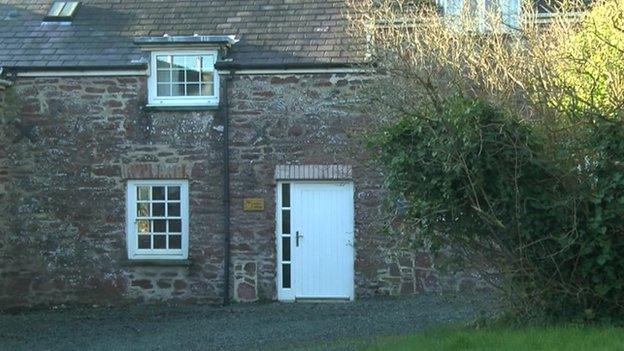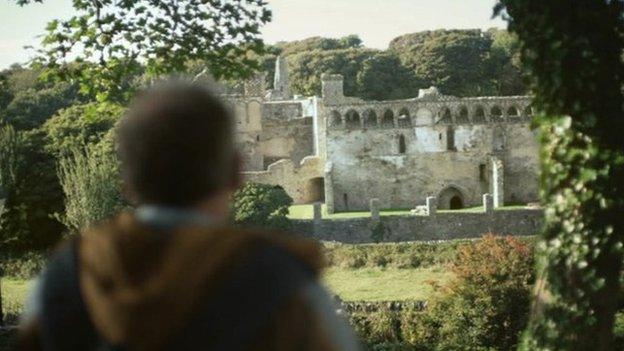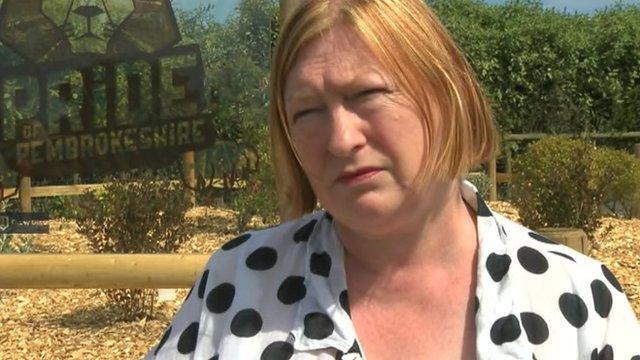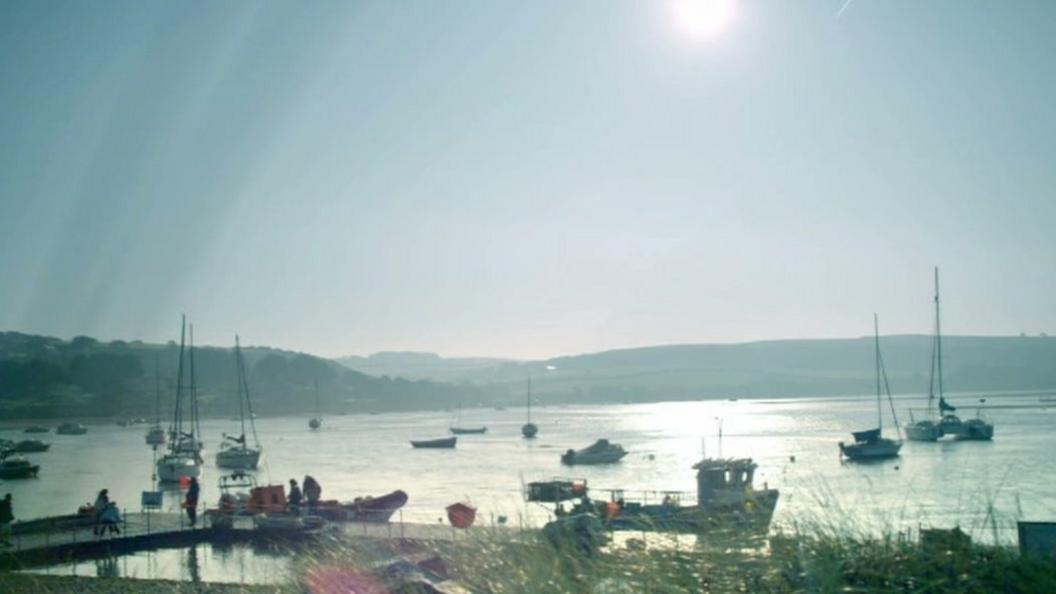Rates could be overpaid on holiday cottages by 'thousands' of pounds
- Published

The business rates on Rosemoor Holiday Cottages have now fallen from over £5,000 a year to zero
Holiday cottage owners in Wales could be paying thousands of pounds more than they should in business rates every year, a tourism expert has warned.
Ex-Wales Tourist Board chief executive Jonathan Jones told BBC Wales the way business rates are calculated for self-catering holiday homes must change.
The owner of a complex of holiday cottages in Pembrokeshire cut his rates from over £5,000 to zero by appealing.
Jan Meulendijk said the business would have closed if he had lost the appeal.
Ex-Wales Tourist Board chief executive Jonathan Jones called for changes
Mr Meulendijk runs Rosemoor Holiday Cottages and Nature Reserve in Walwyn's Castle.
Businesses pay a percentage of what is known as a rateable value in business rates, and those rates are set every five years.
In 2010, the rateable value for Rosemore more than doubled to £13,000.
"Paying the rates was actually slowly beginning to kill the business," Mr Meulendijk said.
"Had we been forced to keep paying them we would have been forced to go under - it was more than the business could sustain."
Jan Meulendijk said his business would have closed if he had lost his appeal
The rateable value of his business was re-set at £6,000 and, as firms receive rate relief on rateable values of £6,000 or under, it means he no longer pays the tax, saving more than £5,000 a year.
Mr Jones, now working as a tourism consultant, appeared as an expert witness for Mr Meulendijk at his appeal and believes the result could have consequences for hundreds of other holiday property owners.
"What you need is a system whereby self catering businesses pay fair business rates," he said.
"I don't think anyone is talking that they don't pay business rates - they are running a business but it should be fair in relation to the contribution they make to the economy and to their business model."
The Valuation Office Agency, external, which sets rateable values for non-domestic property, said it was "content" that its approach was correct.
It said in a statement: "A decision on a particular property does not necessarily mean that the valuations of others require amendment.
"If someone feels our assessment may not be accurate, we would encourage them to discuss their circumstances with us - this is free of charge."
- Published9 August 2014

- Published7 August 2014

- Published19 June 2014

- Published16 April 2014

- Published1 April 2014
